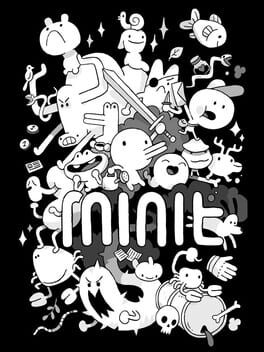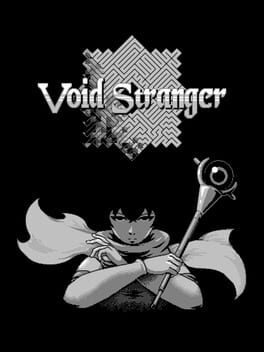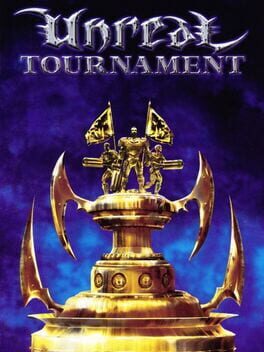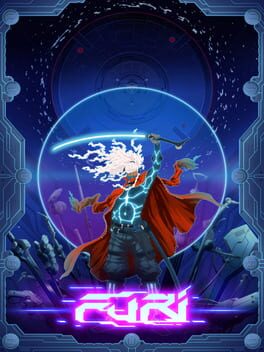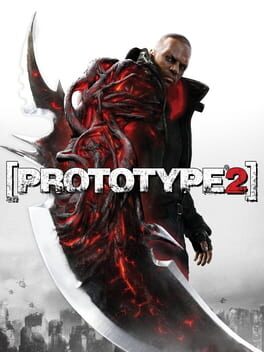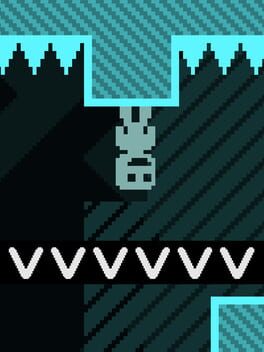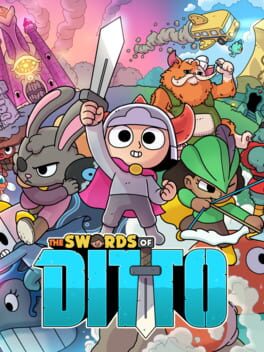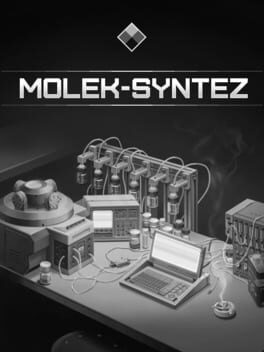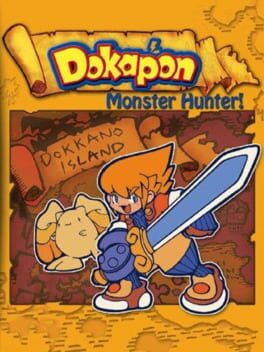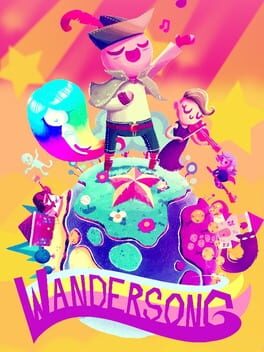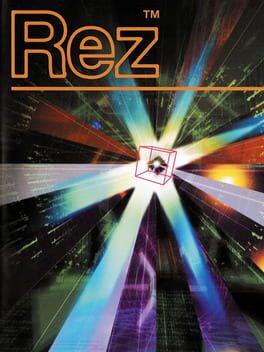Klaustrix
BACKER
2023
It's been 13 years since the cliff-hanger ending of Alan Wake and AW2 was well worth the wait. It's the result of 13 years of lessons learned, refining the formula, and Remedy perfecting their craft to produce a thrilling, innovative, and mind bending story that had me glued from start to finish.
The game cycles between 2 main stories, FBI agents Saga Anderson and Alex Casey investigating a cult at Bright Falls and Alan Wake trying to escape the dark place. Both stories have 10 chapters and you can play them alternating or one then the other. Both stories are intertwined and give one another context but it's difficult to get into more detail without spoilers, needless to say the story threads are beautifully woven into a lattice of narrative that ties everything together, fills in past blanks, and leaves a few interesting loose threads to explore in the future.
AW2 has, hands down, one of the most intricate and well crafted plots I've seen, juggling the meta-narrative with post-modern deconstruction of stories within stories in ways that I could gush about embarrassingly for hours. Granted it can get complicated in places but if you're the kind of person who enjoys a deep, tangled, paranormal thriller then you're in for a treat. If you found the first game too narrative heavy then your mileage may vary as this one follows a deeply cinematic streak with a hefty portion of in-world media to soak in. Similar to AW1 you have a novel's worth of writing to read, radio shows, music, and TV-skits recorded with the real actors who play the cast of characters in the game akin to Control. If you enjoyed that rich world building you're in for a treat!
As for gameplay, it's a fusion of classic Silent Hill and modern Resident Evil bringing the best of both worlds along with Remedy's original recipe, plus they've learned well from their past mistakes. We see a return of the light mechanics, burning off the darkness and then shooting enemies, and while yes the combat is still simple, repetitive, and enemies only have a small variety, combat is kept interesting with a variety of toys/weapons to use, and then broken up by the huge variety of other things to do. Puzzles, exploration, collectibles, conversations, and the stand-out Writers Room / Mind Place mechanics. So when you do have combat it's not around long and doesn't overstay it's welcome like in past games.
The writers room and mind place are new features which each gamify the narrative in different ways giving Saga and Wake's gameplay entirely different feels. Saga has 'the mind place' which is a room in her mind represented as a physical space you walk around, where you can review collectibles, manage upgrades, and track the many twisting narrative threads on an evidence board, pinning up plot points, characters, and evidence as you investigate the mystery, tied together with string and punctuated with Saga's thoughts and conclusions as you go. It makes for a fun way to keep track of everything and identify where to go or what to do next in the 3 major locations around Bright Falls.
Meanwhile Wake has 'the writers room', where he's trapped in the darkness and trying to write his way out. The physical space of the darkness transforms based on his writing, so in each chapter he superimposes a thriller story over his imagined reality and you use the plot points to physically transform the space. A hotel ballroom can host a cult meeting or a ritual murder scene - each with different clues to discover and different paths blocked off. This fractal narrative-within-narrative-within-narrative structure is inspiring to see implemented so naturally and turns the world itself into a unique and interesting puzzle to solve.
AW2 is a refreshing creative vision that is badly needed these days. It captures the atmosphere of horror beautifully and marries media in such creative ways while telling a story in ways no other medium can - this is what video games were made for. On top of that it combines an outstanding story, amazing writing and cinematography, innovative gameplay, a vast supply of world enriching collectibles, stirring performances from the actors, incredible music, a return of everything iconic that Remedy fans loved from the past games, the best graphics I've ever seen, exciting new twists, turns, characters, and developments... what does the game get wrong? Honestly just a handful of glitches, a couple of lip syncing issues, and having to select the only item that works with an interactable from a list.
At the very least it's fair to say that Remedy gets so much right here that its few flaws are easily overlooked. Given the sheer quality of Remedy's content and the hard work on display Alan Wake 2 is definitely my pick for game of the year, and with even more content on the way I can't wait to see what's next. It's amazing to see a company do AAA games justice now more than ever, producing genuine works of art rather than revenue engines. The spirit of true game design is alive in Remedy and I'm proud to support them.
Onnea ja hyvin tehty!
The game cycles between 2 main stories, FBI agents Saga Anderson and Alex Casey investigating a cult at Bright Falls and Alan Wake trying to escape the dark place. Both stories have 10 chapters and you can play them alternating or one then the other. Both stories are intertwined and give one another context but it's difficult to get into more detail without spoilers, needless to say the story threads are beautifully woven into a lattice of narrative that ties everything together, fills in past blanks, and leaves a few interesting loose threads to explore in the future.
AW2 has, hands down, one of the most intricate and well crafted plots I've seen, juggling the meta-narrative with post-modern deconstruction of stories within stories in ways that I could gush about embarrassingly for hours. Granted it can get complicated in places but if you're the kind of person who enjoys a deep, tangled, paranormal thriller then you're in for a treat. If you found the first game too narrative heavy then your mileage may vary as this one follows a deeply cinematic streak with a hefty portion of in-world media to soak in. Similar to AW1 you have a novel's worth of writing to read, radio shows, music, and TV-skits recorded with the real actors who play the cast of characters in the game akin to Control. If you enjoyed that rich world building you're in for a treat!
As for gameplay, it's a fusion of classic Silent Hill and modern Resident Evil bringing the best of both worlds along with Remedy's original recipe, plus they've learned well from their past mistakes. We see a return of the light mechanics, burning off the darkness and then shooting enemies, and while yes the combat is still simple, repetitive, and enemies only have a small variety, combat is kept interesting with a variety of toys/weapons to use, and then broken up by the huge variety of other things to do. Puzzles, exploration, collectibles, conversations, and the stand-out Writers Room / Mind Place mechanics. So when you do have combat it's not around long and doesn't overstay it's welcome like in past games.
The writers room and mind place are new features which each gamify the narrative in different ways giving Saga and Wake's gameplay entirely different feels. Saga has 'the mind place' which is a room in her mind represented as a physical space you walk around, where you can review collectibles, manage upgrades, and track the many twisting narrative threads on an evidence board, pinning up plot points, characters, and evidence as you investigate the mystery, tied together with string and punctuated with Saga's thoughts and conclusions as you go. It makes for a fun way to keep track of everything and identify where to go or what to do next in the 3 major locations around Bright Falls.
Meanwhile Wake has 'the writers room', where he's trapped in the darkness and trying to write his way out. The physical space of the darkness transforms based on his writing, so in each chapter he superimposes a thriller story over his imagined reality and you use the plot points to physically transform the space. A hotel ballroom can host a cult meeting or a ritual murder scene - each with different clues to discover and different paths blocked off. This fractal narrative-within-narrative-within-narrative structure is inspiring to see implemented so naturally and turns the world itself into a unique and interesting puzzle to solve.
AW2 is a refreshing creative vision that is badly needed these days. It captures the atmosphere of horror beautifully and marries media in such creative ways while telling a story in ways no other medium can - this is what video games were made for. On top of that it combines an outstanding story, amazing writing and cinematography, innovative gameplay, a vast supply of world enriching collectibles, stirring performances from the actors, incredible music, a return of everything iconic that Remedy fans loved from the past games, the best graphics I've ever seen, exciting new twists, turns, characters, and developments... what does the game get wrong? Honestly just a handful of glitches, a couple of lip syncing issues, and having to select the only item that works with an interactable from a list.
At the very least it's fair to say that Remedy gets so much right here that its few flaws are easily overlooked. Given the sheer quality of Remedy's content and the hard work on display Alan Wake 2 is definitely my pick for game of the year, and with even more content on the way I can't wait to see what's next. It's amazing to see a company do AAA games justice now more than ever, producing genuine works of art rather than revenue engines. The spirit of true game design is alive in Remedy and I'm proud to support them.
Onnea ja hyvin tehty!
2018
A quirky micro RPG that has you living life one minute at a time as the result of a cursed sword. The premise is pretty cool, and the minimal art style compliments the minimalist design of the game which mimics similarly minimalist RPG's like Links Awakening.
Since you only have one minute to do anything the actual options are all very clearly signposted and telegraphed. Getting from one save point to the next will take about a minute. Completing a nearby challenge will take about a minute. And some of the events are hilariously timed, giving you ever increasing anxiety as you're forced to wait or find yourself trying to reach a destination just in time.
What's disappointing then is that such a tight and efficient design is explored to such a shallow level - or perhaps there simply isn't a way to give it depth. The game is very small, the things you can do are all very straightforward gaming faire, and while I wouldn't say the ending is predictable it is abrupt. There's a small handful of mundane side quests but there's not really the motivation to pursue them since the main story doesn't require anything of you.
It's a cute package and it does have some funny moments, but despite the interesting premise it doesn't really go anywhere or explore the idea in any depth leaving it feeling more like a proof of concept than anything.
Since you only have one minute to do anything the actual options are all very clearly signposted and telegraphed. Getting from one save point to the next will take about a minute. Completing a nearby challenge will take about a minute. And some of the events are hilariously timed, giving you ever increasing anxiety as you're forced to wait or find yourself trying to reach a destination just in time.
What's disappointing then is that such a tight and efficient design is explored to such a shallow level - or perhaps there simply isn't a way to give it depth. The game is very small, the things you can do are all very straightforward gaming faire, and while I wouldn't say the ending is predictable it is abrupt. There's a small handful of mundane side quests but there's not really the motivation to pursue them since the main story doesn't require anything of you.
It's a cute package and it does have some funny moments, but despite the interesting premise it doesn't really go anywhere or explore the idea in any depth leaving it feeling more like a proof of concept than anything.
2023
Scratching beneath the inky surface of Void Stranger reveals a very tight mechanical puzzler with a minimalist game boy art style, mashed up with an anime story, a surreal world, and obtuse meta elements. I can see how people might find this combination charming but it just didn't work for me.
It's difficult to really talk about the game without spoiling it as it goes out of its way to be secretive about its mechanics and premise. It takes the stance that difficulty is synonymous with just not telling you how anything works so the design comes off as being more arbitrary than punishing. There is a lot more depth to the game but all hidden behind vast quantities of tedious puzzle grind so I hope you enjoy that core game loop.
Under the veneer of mystery is a reasonable and challenging sokoban-style puzzler. You can remove and place blocks but only from/to a space directly in front of you. The rigid movement makes facing the right way a challenge of navigating the tight spaces and doing things in the right order. This is complicated by gaps, blocks with different mechanics, obstacles, and enemies that wander the stage. Despite being mechanically sterile the puzzles are serviceable but repetitive and lack a 'fun' element preventing me from really engaging with the game beyond the surface level.
The other half of the game involves its setting and story which are drip fed throughout. While I'll avoid getting into details, both the story and main character feel uninspired at first glance. While I understand the game ends up going into a lot of depth I just wasn't hooked by the story breadcrumbs or the core game loop so I had no motivation to even finish the first playthrough.
Whether this game captures the nuances it's trying to emulate will come down to player preference. I was taken in by the trailer but I felt like it's attempts to be dark and mysterious just feel obvious and predictable. The hints at larger layers of puzzle and the mechanics you'll obviously need to get there struck me as tedious and boring - spoiling the game for myself revealed this hunch to be completely right. If you aren't hooked by the core loop and story in the first few hours, the next 40 aren't worth the effort.
It's difficult to really talk about the game without spoiling it as it goes out of its way to be secretive about its mechanics and premise. It takes the stance that difficulty is synonymous with just not telling you how anything works so the design comes off as being more arbitrary than punishing. There is a lot more depth to the game but all hidden behind vast quantities of tedious puzzle grind so I hope you enjoy that core game loop.
Under the veneer of mystery is a reasonable and challenging sokoban-style puzzler. You can remove and place blocks but only from/to a space directly in front of you. The rigid movement makes facing the right way a challenge of navigating the tight spaces and doing things in the right order. This is complicated by gaps, blocks with different mechanics, obstacles, and enemies that wander the stage. Despite being mechanically sterile the puzzles are serviceable but repetitive and lack a 'fun' element preventing me from really engaging with the game beyond the surface level.
The other half of the game involves its setting and story which are drip fed throughout. While I'll avoid getting into details, both the story and main character feel uninspired at first glance. While I understand the game ends up going into a lot of depth I just wasn't hooked by the story breadcrumbs or the core game loop so I had no motivation to even finish the first playthrough.
Whether this game captures the nuances it's trying to emulate will come down to player preference. I was taken in by the trailer but I felt like it's attempts to be dark and mysterious just feel obvious and predictable. The hints at larger layers of puzzle and the mechanics you'll obviously need to get there struck me as tedious and boring - spoiling the game for myself revealed this hunch to be completely right. If you aren't hooked by the core loop and story in the first few hours, the next 40 aren't worth the effort.
1999
While many were introduced to the FPS genre by legendary games like Doom or Quake, I landed at just the right time to pick up Unreal Tournament. It was a visceral and eclectic introduction to the genre with an all-in-one package that featured a little bit everything and a focus on variety.
From the incredible map designs like Phobos and Facing Worlds, the chaos of everyone having personal teleporters, and the various character models to play with, UT was a game that took the best of everything that came before it and put it in one place. Each of its weapons feel like it's own playstyle (a design that would go on to inspire the modern hero shooters), it had the iconic announcer voice, and of course there were so many different game modes and modifiers - aka Mutators.
You could play a very grounded and tactical capture the flag game, or go wild with a deathmatch on a low gravity map, and insta-kill weapons. While you can say that UT never really came up with any of these concepts it did put them all together to create a fun game that was at just the right time for anyone to pick up and play. You didn't have to be the best at everything, know all the glitches, or adopt a meta. If you were new you could grab just about any weapon and get some kills while the more experienced players knew tricks like how to make the shock rifle bubbles explode and master rocket jumps. And of course you could always find the Redeemer nuclear rocket launcher and even the playing field by sending gibs bouncing around the room spraying blood everywhere.
While later versions of the game would focus more on gimmicks, elaborate game modes, and battlefield style vehicular combat, UT was very much the purest form of it's own playstyle. It exists now as a kind of perfect bubble that encapsulates the features, mechanics, and gameplay from that era. It may not be as ground-breaking, prolific, or well remembered but for me it still holds many of my favourite FPS experiences before the genre got so bogged down by legacy IP's and homogenised gameplay.
From the incredible map designs like Phobos and Facing Worlds, the chaos of everyone having personal teleporters, and the various character models to play with, UT was a game that took the best of everything that came before it and put it in one place. Each of its weapons feel like it's own playstyle (a design that would go on to inspire the modern hero shooters), it had the iconic announcer voice, and of course there were so many different game modes and modifiers - aka Mutators.
You could play a very grounded and tactical capture the flag game, or go wild with a deathmatch on a low gravity map, and insta-kill weapons. While you can say that UT never really came up with any of these concepts it did put them all together to create a fun game that was at just the right time for anyone to pick up and play. You didn't have to be the best at everything, know all the glitches, or adopt a meta. If you were new you could grab just about any weapon and get some kills while the more experienced players knew tricks like how to make the shock rifle bubbles explode and master rocket jumps. And of course you could always find the Redeemer nuclear rocket launcher and even the playing field by sending gibs bouncing around the room spraying blood everywhere.
While later versions of the game would focus more on gimmicks, elaborate game modes, and battlefield style vehicular combat, UT was very much the purest form of it's own playstyle. It exists now as a kind of perfect bubble that encapsulates the features, mechanics, and gameplay from that era. It may not be as ground-breaking, prolific, or well remembered but for me it still holds many of my favourite FPS experiences before the genre got so bogged down by legacy IP's and homogenised gameplay.
2016
Furi is a tough as nails boss rush title that has you facing off against 12 jailers standing between you and freedom. The game has one of the best EDM soundtracks you'll find and some very stylish battles done in full anime chique with some brutal combat animations.
Fights go down in roughly 3 different segments. Firstly you have some freedom to move around as the boss pursues you. Then there are the close up sections where you're forced into tight quarters with the boss. Then there are the bullet hell segments where the boss unleashes a lengthy volley of attacks at you which you need to learn to navigate using your gun and dashes to carve a path.
Every fight has it's own unique gimmicks and challenges - they become as much puzzles as fights in that sense. The difficulty is punishing though it is possible to recover some health through perfect performance. The fights are long and arduous requiring you to memorize different patterns and make use of very sharp reflexes, so it can get very challenging quickly.
While I love watching the game be played it's stressful to experience first hand and by the time I got to the 4th boss some of the patterns can get real wild, requiring twitch reflexes and perfect inputs otherwise you get badly punished and have to restart long sections over again. Personally I wasn't into that sort of repetition and called it quits - considering how intense the game gets later on I'm not mad that I did.
High points for sheer style and presentation, the gameplay is fun and intense but probably best suits a more resilient and persistent player, unfortunately that isn't me.
Fights go down in roughly 3 different segments. Firstly you have some freedom to move around as the boss pursues you. Then there are the close up sections where you're forced into tight quarters with the boss. Then there are the bullet hell segments where the boss unleashes a lengthy volley of attacks at you which you need to learn to navigate using your gun and dashes to carve a path.
Every fight has it's own unique gimmicks and challenges - they become as much puzzles as fights in that sense. The difficulty is punishing though it is possible to recover some health through perfect performance. The fights are long and arduous requiring you to memorize different patterns and make use of very sharp reflexes, so it can get very challenging quickly.
While I love watching the game be played it's stressful to experience first hand and by the time I got to the 4th boss some of the patterns can get real wild, requiring twitch reflexes and perfect inputs otherwise you get badly punished and have to restart long sections over again. Personally I wasn't into that sort of repetition and called it quits - considering how intense the game gets later on I'm not mad that I did.
High points for sheer style and presentation, the gameplay is fun and intense but probably best suits a more resilient and persistent player, unfortunately that isn't me.
2012
One of the last great god games. Prototype 2 puts you in the shoes of James Heller a soldier turned monstrous mutant whose family are killed as a result of the first game's protagonist intentionally spreading the blacklight virus, so Heller goes after Mercer to get revenge.
It's a solidly designed playground of visceral carnage that encourages you to run around and have fun with the variety of monstrous toys at your disposal. Your bio-weapons each have a different but satisfying playstyle and you face off against a small but well crafted selection of enemies that grow increasingly attuned to your power in ways that challenge you to master each weapon rather than just providing resistance to it.
Heller makes for a fun protagonist whose impatience and anger often result in humorous dialogue given the technical and scientific story going on around him. The story itself is nothing special involving a series of predictable betrayals which justify the escalating violence.
The gameplay is engaging and constantly mixes things up as each mission makes full use of your mutant tool kit. Whether you're stealing identities and using stealth to infiltrate the enemy, facing off against other evolved and mutated monsters to steal their powers, high speed movement challenges, or delving into nests to destroy infestations, none of your abilities go to waste. There's also a variety of challenges, minigames, and collectibles to give you an excuse to explore every inch of the islands.
The movement in this game feels amazing as you charge up buildings, glide through the air, and crash down again decimating everything in your path. It's a game that captures the feeling of being powerful like you're in a lucid dream and anything is possible. Everything you do has a hefty weight to it, the bioweapons create satisfying bloody smears and stringy gore out of anything in your path, and the devastators only turn the chaos up to eleven as you unleash bloody obliteration on everything around you.
Overall Prototype 2 is just a fun sandbox game the likes of which you don't see any more. It's hilariously violent, unashamedly stupid at times, and escalates into an insane bloody finale with no delusions of heroism.
It's a solidly designed playground of visceral carnage that encourages you to run around and have fun with the variety of monstrous toys at your disposal. Your bio-weapons each have a different but satisfying playstyle and you face off against a small but well crafted selection of enemies that grow increasingly attuned to your power in ways that challenge you to master each weapon rather than just providing resistance to it.
Heller makes for a fun protagonist whose impatience and anger often result in humorous dialogue given the technical and scientific story going on around him. The story itself is nothing special involving a series of predictable betrayals which justify the escalating violence.
The gameplay is engaging and constantly mixes things up as each mission makes full use of your mutant tool kit. Whether you're stealing identities and using stealth to infiltrate the enemy, facing off against other evolved and mutated monsters to steal their powers, high speed movement challenges, or delving into nests to destroy infestations, none of your abilities go to waste. There's also a variety of challenges, minigames, and collectibles to give you an excuse to explore every inch of the islands.
The movement in this game feels amazing as you charge up buildings, glide through the air, and crash down again decimating everything in your path. It's a game that captures the feeling of being powerful like you're in a lucid dream and anything is possible. Everything you do has a hefty weight to it, the bioweapons create satisfying bloody smears and stringy gore out of anything in your path, and the devastators only turn the chaos up to eleven as you unleash bloody obliteration on everything around you.
Overall Prototype 2 is just a fun sandbox game the likes of which you don't see any more. It's hilariously violent, unashamedly stupid at times, and escalates into an insane bloody finale with no delusions of heroism.
2010
A charming and devilishly simple but challenging puzzle platformer by Terry Cavanagh (Dicey Dungeons, Super Hexagon).
You can move left and right but instead of jumping you flip gravity, a simple mechanic but explored in a variety of interesting ways to its fullest extent across the different areas of the game. The puzzles begin simple and grow increasingly complex as you have to deal with auto-scrolling, looping, and even making journeys across multiple screens and back again. There's a surprising amount of variety and challenge that comes from such a simple singular mechanic.
The art may be simplified and the story just an excuse to stitch the puzzles together, but the music is absolutely the highlight here next to gameplay. Every song by Magnus Palsson is a chiptune classic that makes spending time in each area a head bopping pleasure.
While not very long VVVVVV is more minimalist than minimal. It makes the most of what it has to offer and doesn't pretend to be anything more. It doesn't convolute it's design with unnecessary systems, it has some collectibles for challenges, explores its one mechanic in interesting ways, and doesn't outstay it's welcome. For the crazy low price now it's a steal and a guaranteed fun 2 hours of gameplay for those who like platformers.
You can move left and right but instead of jumping you flip gravity, a simple mechanic but explored in a variety of interesting ways to its fullest extent across the different areas of the game. The puzzles begin simple and grow increasingly complex as you have to deal with auto-scrolling, looping, and even making journeys across multiple screens and back again. There's a surprising amount of variety and challenge that comes from such a simple singular mechanic.
The art may be simplified and the story just an excuse to stitch the puzzles together, but the music is absolutely the highlight here next to gameplay. Every song by Magnus Palsson is a chiptune classic that makes spending time in each area a head bopping pleasure.
While not very long VVVVVV is more minimalist than minimal. It makes the most of what it has to offer and doesn't pretend to be anything more. It doesn't convolute it's design with unnecessary systems, it has some collectibles for challenges, explores its one mechanic in interesting ways, and doesn't outstay it's welcome. For the crazy low price now it's a steal and a guaranteed fun 2 hours of gameplay for those who like platformers.
2024
A stunning puzzle platformer that combines tight mechanical design with a vividly dream-like pixel aesthetic. This game is the best of what's come before blended with plenty of fresh innovations that make it a joy to explore.
Plenty of games have done the pixelated look but this game truly stands out. The combination of dynamic lighting, the way every little shrub, vine, and light moves as you pass it, and the vividly dream-like wispy lighting and particles leave Animal Well feeling like nothing I've played before. The result is something equal parts haunting and surreal, enriched further by the beautiful soundtrack, foley, and sound effects. The audio combines to create a blend of commodore chirps with more realistic sounds that heighten the already rich atmosphere.
Gameplay consists primarily of tightly designed classic platforming throughout the vast labyrinthine world which plays host to a variety of feature rich biomes. Each screen feels thoughtfully crafted and given the immense depth of the world it's no surprise. As you explore you'll begin solving puzzles to access new tools, as is tradition of the metroidvania; But Animal Well is uniquely original in this regard making innovative use of very simple and well implemented gear with stacking mechanics galore. Of course getting the tools is only the first step down a long and winding road of gameplay I won't spoil here - but deep as the rabbit hole goes there are plenty of stopping off points for those who know their limits.
If you enjoy a good puzzle platformer then Animal Well is worth the play for the excellent design and ethereal aesthetic of its world. There's an amazing game just on the surface that anyone can see through to the end. For those who want to scratch deeper though (or just follow guides to explore all the content) the game will treat you generously. AW epitomises the heart and soul of indie gaming - hand crafted, generous in content, lovingly made, and charming from start to finish. An incredible start for Billy Basso and Bigmode.
Plenty of games have done the pixelated look but this game truly stands out. The combination of dynamic lighting, the way every little shrub, vine, and light moves as you pass it, and the vividly dream-like wispy lighting and particles leave Animal Well feeling like nothing I've played before. The result is something equal parts haunting and surreal, enriched further by the beautiful soundtrack, foley, and sound effects. The audio combines to create a blend of commodore chirps with more realistic sounds that heighten the already rich atmosphere.
Gameplay consists primarily of tightly designed classic platforming throughout the vast labyrinthine world which plays host to a variety of feature rich biomes. Each screen feels thoughtfully crafted and given the immense depth of the world it's no surprise. As you explore you'll begin solving puzzles to access new tools, as is tradition of the metroidvania; But Animal Well is uniquely original in this regard making innovative use of very simple and well implemented gear with stacking mechanics galore. Of course getting the tools is only the first step down a long and winding road of gameplay I won't spoil here - but deep as the rabbit hole goes there are plenty of stopping off points for those who know their limits.
If you enjoy a good puzzle platformer then Animal Well is worth the play for the excellent design and ethereal aesthetic of its world. There's an amazing game just on the surface that anyone can see through to the end. For those who want to scratch deeper though (or just follow guides to explore all the content) the game will treat you generously. AW epitomises the heart and soul of indie gaming - hand crafted, generous in content, lovingly made, and charming from start to finish. An incredible start for Billy Basso and Bigmode.
2018
A roguelike that captures a cute cartoony artistic style and parodies the Zelda series. While the game juggles the core tropes from Zelda it goes for a much more whimsical and silly tone, such as its legendary equipment being called Toys and power ups represented by Stickers.
The basic idea of the game is that there's an evil witch who curses the world and a hero arises who is challenged with defeating her. However every time you die 100 years pass until a new hero is born during which time the world changes.
The game's broad loop is that each time you're reborn you have 5 days to explore the land, gather equipment, complete dungeons, destroy the 'anchors' that weaken the final boss, and go face off against the big bad Mormo in her castle.
I think the problem with this game is that its whole design is contradictory. It wants you to explore but not to make too much progress, it wants you to get stronger but has scaling difficulty on enemies so you never feel stronger, it wants you to beat dungeons but imposes a bunch of arbitrary difficulty modifiers to slow you down. At every step it sort of punches itself in the face to justify it's own mechanics.
I think after my first win I realised that this is the type of game that's more interested in doing what it wants to do than really factoring in if that makes the game better or worse. For me it just didn't make the game any more fun. A lot of the design decisions seem arbitrary and I just couldn't get on with it.
The basic idea of the game is that there's an evil witch who curses the world and a hero arises who is challenged with defeating her. However every time you die 100 years pass until a new hero is born during which time the world changes.
The game's broad loop is that each time you're reborn you have 5 days to explore the land, gather equipment, complete dungeons, destroy the 'anchors' that weaken the final boss, and go face off against the big bad Mormo in her castle.
I think the problem with this game is that its whole design is contradictory. It wants you to explore but not to make too much progress, it wants you to get stronger but has scaling difficulty on enemies so you never feel stronger, it wants you to beat dungeons but imposes a bunch of arbitrary difficulty modifiers to slow you down. At every step it sort of punches itself in the face to justify it's own mechanics.
I think after my first win I realised that this is the type of game that's more interested in doing what it wants to do than really factoring in if that makes the game better or worse. For me it just didn't make the game any more fun. A lot of the design decisions seem arbitrary and I just couldn't get on with it.
2019
As one of Zachtronic's final puzzle games Molek-Syntez feels like a bleak note to end on. It has all the mechanical and functional feel of a zach game, but its stylistic minimalism and the blunt game design leave it feeling as cold and lonely as the narrator. A slightly dire send off for old fans and far from the place to start for those new to the series.
Your goal here is to program tools affixed to the edges of the board to re-arrange base elements into new ones, but how you do that is left to your experimentation as there's no instructions or tutorial. This hands off approach may leave you feeling helpless or empowered depending how much experience you have with the series. Long time fans will be able to intuit most of the gameplay while newcomers will be at a loss quickly with no guidance except what little guidance the fan base have put together.
If you enjoy zach games this is very much more of the same with some new twists - it feels like an experimental remix of Opus Magnum minus the flare and pageantry. The story is limited to some on-screen text so there's no characters, art, or animations, just you and the puzzles. As for the style and music, if you think of Exa as the stereotypical US themed game, Shenzen as the Asia one, and Opus as the Western Europe one, Molek is very much the Eastern European game with the cold and sardonic tone tropes at play.
I feel like zach games have always struggled to make their titles feel more fun than functional, but here the pretence is eschewed and you're left with the mechanics laid bare. If you're familiar with Opus you can expect a similar albeit more challenging experience, and if not you should start with something more accessible like EXA-Punks or Opus Magnum. This isn't one for newcomers and will likely give you a polarising introduction to the premise of these games.
Your goal here is to program tools affixed to the edges of the board to re-arrange base elements into new ones, but how you do that is left to your experimentation as there's no instructions or tutorial. This hands off approach may leave you feeling helpless or empowered depending how much experience you have with the series. Long time fans will be able to intuit most of the gameplay while newcomers will be at a loss quickly with no guidance except what little guidance the fan base have put together.
If you enjoy zach games this is very much more of the same with some new twists - it feels like an experimental remix of Opus Magnum minus the flare and pageantry. The story is limited to some on-screen text so there's no characters, art, or animations, just you and the puzzles. As for the style and music, if you think of Exa as the stereotypical US themed game, Shenzen as the Asia one, and Opus as the Western Europe one, Molek is very much the Eastern European game with the cold and sardonic tone tropes at play.
I feel like zach games have always struggled to make their titles feel more fun than functional, but here the pretence is eschewed and you're left with the mechanics laid bare. If you're familiar with Opus you can expect a similar albeit more challenging experience, and if not you should start with something more accessible like EXA-Punks or Opus Magnum. This isn't one for newcomers and will likely give you a polarising introduction to the premise of these games.
Dokpaon Monster Hunter is a mystery dungeon style game that feels like a lazy copy and paste of their board game mechanics. The result is a game that feels slow, tedious, lazy, and poorly thought out.
The game is terribly translated, and not in the way that gives it character like in later entries, it's just barely understandable. The story is childish nonsense anyway, NPC's spout generic lines that repeat the same thing over and over, and then you go to the first dungeon.
There's no tutorial or explanation on how to play, the items you get have no use because enemies die in one hit and you take 1 damage if you do get hit, the combat transitions are very slow and enemies are very common so that gets old fast, and the combat music is a very annoying 3 second loop.
All the tactical variety is in small numerical buffs to attack, defence, or speed, as are the skills you start unlocking, and the bonuses from the weapons you discover. Not that you have any use for them. Enemy sprites in the dungeon also don't look anything like what you end up fighting, and the level designs are incredibly simplistic with no real features.
When I finally got to the boss it one shot me despite having found some 'prevent knockout' items. Maybe if I'd had a reason to figure out what the rock paper scissors mechanics do or if I'd gotten lucky and found better gear I might have survived? All I know for sure is I lost everything found so far and had to start the dungeon over from scratch. I didn't feel like losing another hour to playing more of this.
The copy pasted combat mechanics from the other Dokapon games feel ironically out of place in this rpg game, combat is tedious, poorly implemented, and unintuitive. Menus don't work how you would expect, the skills are numeric and boring, the items and equipment are lacklustre, the maps are dull, the enemies are generic, and the writing is terrible. Maybe mystery dungeons aren't my thing but the core loop was just very off putting. Low marks all around.
The game is terribly translated, and not in the way that gives it character like in later entries, it's just barely understandable. The story is childish nonsense anyway, NPC's spout generic lines that repeat the same thing over and over, and then you go to the first dungeon.
There's no tutorial or explanation on how to play, the items you get have no use because enemies die in one hit and you take 1 damage if you do get hit, the combat transitions are very slow and enemies are very common so that gets old fast, and the combat music is a very annoying 3 second loop.
All the tactical variety is in small numerical buffs to attack, defence, or speed, as are the skills you start unlocking, and the bonuses from the weapons you discover. Not that you have any use for them. Enemy sprites in the dungeon also don't look anything like what you end up fighting, and the level designs are incredibly simplistic with no real features.
When I finally got to the boss it one shot me despite having found some 'prevent knockout' items. Maybe if I'd had a reason to figure out what the rock paper scissors mechanics do or if I'd gotten lucky and found better gear I might have survived? All I know for sure is I lost everything found so far and had to start the dungeon over from scratch. I didn't feel like losing another hour to playing more of this.
The copy pasted combat mechanics from the other Dokapon games feel ironically out of place in this rpg game, combat is tedious, poorly implemented, and unintuitive. Menus don't work how you would expect, the skills are numeric and boring, the items and equipment are lacklustre, the maps are dull, the enemies are generic, and the writing is terrible. Maybe mystery dungeons aren't my thing but the core loop was just very off putting. Low marks all around.
1997
One of the most iconic isometric RPG's ever made, marking the birth of a whole franchise. Going back to its roots certainly fills in the blanks for a lot of the questionable design decisions of the 3D games, but none of them quite compare to the uniquely bleak and wonderful writing that went into this classic - even if the bugs were just as bad then as they are now.
In a world ravaged by nuclear war you take on the role of a survivor, safe and sound in a high tech Vault. But when your vault's water system fails it's up to you to head into the irradiated wastelands in search of a new water chip. It's a simple set up that propels you into a vast and detailed world, filled with charismatic characters and idealistic villains clashing in their search for a brighter tomorrow.
The writing in Fallout is its greatest strength. It shines through in the dialogue, characters, and idealism explored throughout. Each of the forces at play make sense and the individuals behind them are brought to life by the animated talking heads and excellent voice acting. The game doesn't shy away from harsh realities either and and doesn't talk down to the player about them - the only downside is that the longer you play the more you see this quality isn't consistent throughout.
Similarly Fallout offers vast customisation at first glance but the potential is undercut by how few skills are ever useful. Speech and Science? Unlocks a whole new ending. Gambling and Outdoorsman? Your mileage may vary. Granted there's at least one or two times each skill shines in the game but most of these can be bypassed or missed without any indication it was a possibility. That and half the game is focused on combat, so no matter what you need to invest in one of the fighting skills.
I also made the mistake of taking points out of strength so I was terrible at using guns until I got the power armour, relying on drugs and my companions to shoulder me through most firefights. Companions are admittedly a huge boon for sure but at the cost of being uncontrollable and difficult to manage, at times either getting you or themselves killed. They can block doorways, act when you don't want them to, or end up getting themselves lost in the desert disappearing from the game if you don't leave them specifically in a town (unless it's dogmeat who has to die to leave the party).
Which bring us to the deep scar that runs though Fallout - the game is undercooked. The further you play the less stable the game gets, the less elegant the dialogue trees become, and the more things seem to be missing - not just content but also resolutions to plot threads, entire gangs, and locations. All of this ended up on the cutting room floor, though much of it still gets mentioned or alluded to.
Overall Fallout is impressive despite its flaws, especially for its time. It explains why the 3D sequels make so many weird design decisions in a poor attempt to replicate the potential here, it's just a shame that the issues are so prevalent as I found myself hurrying towards an ending because of them. That said I still want to return, explore the rest of the map, see the endings, and try more builds in spite of everything. It definitely earns itself high marks but sadly the core issues and lack of polish prevent it from reaching the top.
Note: I've since read that the Et Tu mod (FO1 in the FO2 engine) solves many of the QOL issues I encountered, so I'd advocate anyone who wants to try FO1 should definitely give that a go for a better first impression.
In a world ravaged by nuclear war you take on the role of a survivor, safe and sound in a high tech Vault. But when your vault's water system fails it's up to you to head into the irradiated wastelands in search of a new water chip. It's a simple set up that propels you into a vast and detailed world, filled with charismatic characters and idealistic villains clashing in their search for a brighter tomorrow.
The writing in Fallout is its greatest strength. It shines through in the dialogue, characters, and idealism explored throughout. Each of the forces at play make sense and the individuals behind them are brought to life by the animated talking heads and excellent voice acting. The game doesn't shy away from harsh realities either and and doesn't talk down to the player about them - the only downside is that the longer you play the more you see this quality isn't consistent throughout.
Similarly Fallout offers vast customisation at first glance but the potential is undercut by how few skills are ever useful. Speech and Science? Unlocks a whole new ending. Gambling and Outdoorsman? Your mileage may vary. Granted there's at least one or two times each skill shines in the game but most of these can be bypassed or missed without any indication it was a possibility. That and half the game is focused on combat, so no matter what you need to invest in one of the fighting skills.
I also made the mistake of taking points out of strength so I was terrible at using guns until I got the power armour, relying on drugs and my companions to shoulder me through most firefights. Companions are admittedly a huge boon for sure but at the cost of being uncontrollable and difficult to manage, at times either getting you or themselves killed. They can block doorways, act when you don't want them to, or end up getting themselves lost in the desert disappearing from the game if you don't leave them specifically in a town (unless it's dogmeat who has to die to leave the party).
Which bring us to the deep scar that runs though Fallout - the game is undercooked. The further you play the less stable the game gets, the less elegant the dialogue trees become, and the more things seem to be missing - not just content but also resolutions to plot threads, entire gangs, and locations. All of this ended up on the cutting room floor, though much of it still gets mentioned or alluded to.
Overall Fallout is impressive despite its flaws, especially for its time. It explains why the 3D sequels make so many weird design decisions in a poor attempt to replicate the potential here, it's just a shame that the issues are so prevalent as I found myself hurrying towards an ending because of them. That said I still want to return, explore the rest of the map, see the endings, and try more builds in spite of everything. It definitely earns itself high marks but sadly the core issues and lack of polish prevent it from reaching the top.
Note: I've since read that the Et Tu mod (FO1 in the FO2 engine) solves many of the QOL issues I encountered, so I'd advocate anyone who wants to try FO1 should definitely give that a go for a better first impression.
2018
This is the tale of one little bard travelling the world and singing to solve puzzles. And it is the best game I have ever played. The world is dripping with charm, filled with cute and interesting characters, hilarious and wholesome writing, packed with fun twists and turns for the story, and your only way to affect the world is by singing.
The singing mechanics are very cleverly implemented - each note corresponds to a colour and wherever you see the colour you can usually interact with that part of the world by singing that note. This results in a beautiful and excellently scored array of puzzles, interactions, and of course musical sections that never fail to delight.
This is a game brimming with atmosphere, the work that went into all the music is phenomenal, the innovative ideas behind the various challenges and how everything fits together is impressive, and the story had me in tears both of joy and sadness from beginning to end. One of my very few 5/5 games not because it's flawless, but because I feel that what it gets right it does so well that I'm compelled to overlook its flaws. It really just strikes a chord with me.
The singing mechanics are very cleverly implemented - each note corresponds to a colour and wherever you see the colour you can usually interact with that part of the world by singing that note. This results in a beautiful and excellently scored array of puzzles, interactions, and of course musical sections that never fail to delight.
This is a game brimming with atmosphere, the work that went into all the music is phenomenal, the innovative ideas behind the various challenges and how everything fits together is impressive, and the story had me in tears both of joy and sadness from beginning to end. One of my very few 5/5 games not because it's flawless, but because I feel that what it gets right it does so well that I'm compelled to overlook its flaws. It really just strikes a chord with me.
2017
I actually hated this when I first played it, I was not feeling charitable and the very slow opening to the game and the very samey opening tunnels from dirtmouth were off-putting. Even I can be a dumb moron at times.
The moment I started to truly venture out and make progress, it all snowballed. I quickly came to appreciate just how well tuned and beautifully presented this game is. Team Cherry set the bar in terms of how utterly polished, beautiful, large, and well designed a game can be without jacking the price up.
It's definitely a best-in-genre for the metroidvania type with a wonderfully imaginative setting, mysterious soft world building, iconic characters, an incredible music score, and that's not even getting into the gameplay. The combat is very tightly balanced, constantly evolving in natural ways, and the movement is so silky smooth with additional unlocks only adding to how smooth and elegant the game feels.
Exploration feels natural and lets you go in any direction, each area has its own play-feel with a variety of level, art, and sound designs that compliment one another. The bosses are tightly designed and challenging, only occasionally in a 'this feels unfair' kinda way. Even the charms are varied and offer such an interesting variety of ways to customise your play experience without overriding the core game mechanics.
It's not a perfect game, but the generosity of the studio and how well made and good looking the game is really overshadow it's issues. Personally I think the shade is unnecessary, its easy to get lost in the less memorable areas, some of the travel can be a pain in the ass (like getting through the queens garden repeatedly).
I find a lot of the end game content gated behind just sucking at the game and similarly while there's tons of DLC not all of them add content I can really engage with because again, I kinda suck at the more extreme challenges. But there's a lot to love regardless of my skill issues.
The moment I started to truly venture out and make progress, it all snowballed. I quickly came to appreciate just how well tuned and beautifully presented this game is. Team Cherry set the bar in terms of how utterly polished, beautiful, large, and well designed a game can be without jacking the price up.
It's definitely a best-in-genre for the metroidvania type with a wonderfully imaginative setting, mysterious soft world building, iconic characters, an incredible music score, and that's not even getting into the gameplay. The combat is very tightly balanced, constantly evolving in natural ways, and the movement is so silky smooth with additional unlocks only adding to how smooth and elegant the game feels.
Exploration feels natural and lets you go in any direction, each area has its own play-feel with a variety of level, art, and sound designs that compliment one another. The bosses are tightly designed and challenging, only occasionally in a 'this feels unfair' kinda way. Even the charms are varied and offer such an interesting variety of ways to customise your play experience without overriding the core game mechanics.
It's not a perfect game, but the generosity of the studio and how well made and good looking the game is really overshadow it's issues. Personally I think the shade is unnecessary, its easy to get lost in the less memorable areas, some of the travel can be a pain in the ass (like getting through the queens garden repeatedly).
I find a lot of the end game content gated behind just sucking at the game and similarly while there's tons of DLC not all of them add content I can really engage with because again, I kinda suck at the more extreme challenges. But there's a lot to love regardless of my skill issues.
2001
A surreal rail shooter that eschews complex gameplay for a killer soundtrack and stunning visuals by Tetsuya Mizuguchi (Tetris Effect, Child of Eden).
This game boasts a psychedelic light show depicting a virus in the future trying to hack its way through a mainframe to release an artificial intelligence - at least that's the vague justification behind the abstract wireframe world you float through in each stage. The visuals are inspired by the 80's cyberpunk vision of digital cyberscapes akin to Tron and the early CGI from films like The Lawnmower Man. Its crude by todays standards but for a stunning visual upgrade there's always Rez Infinite on steam.
The gameplay has you shooting waves of enemies and their projectiles but each attack is accompanied by sound effects that turn your actions into an extension of the soundtrack blurring the line between shooter and rhythm game. The surreal environments take you on a wild journey that grows in speed and intensity, the beat and tempo escalating until you reach the bosses which take the form of intense thrumming fever dreams with unforgettable visuals.
If you're familiar with Tetsuya's other works you'll recognize the trademark style over substance approach. It may not have deep gameplay but Rez is more of a sensory experience, the 'trance vibrator' is a testament to that. I rate this highly as it remains one of the earlier examples of designers challenging the conventions of gaming, pushing the boundaries between art, game, and what a gaming experience can be akin to the likes of LSD Dream Emulator.
This game boasts a psychedelic light show depicting a virus in the future trying to hack its way through a mainframe to release an artificial intelligence - at least that's the vague justification behind the abstract wireframe world you float through in each stage. The visuals are inspired by the 80's cyberpunk vision of digital cyberscapes akin to Tron and the early CGI from films like The Lawnmower Man. Its crude by todays standards but for a stunning visual upgrade there's always Rez Infinite on steam.
The gameplay has you shooting waves of enemies and their projectiles but each attack is accompanied by sound effects that turn your actions into an extension of the soundtrack blurring the line between shooter and rhythm game. The surreal environments take you on a wild journey that grows in speed and intensity, the beat and tempo escalating until you reach the bosses which take the form of intense thrumming fever dreams with unforgettable visuals.
If you're familiar with Tetsuya's other works you'll recognize the trademark style over substance approach. It may not have deep gameplay but Rez is more of a sensory experience, the 'trance vibrator' is a testament to that. I rate this highly as it remains one of the earlier examples of designers challenging the conventions of gaming, pushing the boundaries between art, game, and what a gaming experience can be akin to the likes of LSD Dream Emulator.

